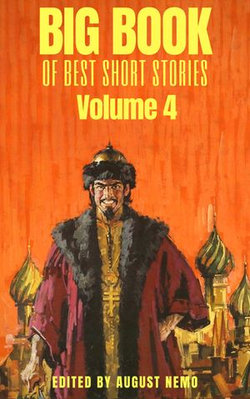This book contains 70 short stories from 10 classic, prize-winning and noteworthy authors. The stories were carefully selected by the critic August Nemo, in a collection that will please the literature lovers. For more exciting titles, be sure to check out our 7 Best Short Stories and Essential Novelists collections. This book contains: - Nikolai GogolThe Nose The Viy The Cloak Old-Fashioned Farmers The Overcoat Memoirs of a Madman The Mysterious Portrait - Anton ChekhovThe Lady With The Little Dog Ward No. 6 A Joke The Darling Kashtanka The Black Monk In The Ravine - Joseph ConradThe Idiots An Outpost of Progress Amy Foster Youth An Anarchist The Secret Sharer The Return - Leonid AndreyevLazarus On The Day of Crucifixion The Crushed Flower The Serpent's Story JUdas Iscariot The Little Angel A Story Wich Will Never Be Finished - James JoyceThe Sisters Eveline Araby A Painful Case The Dead Two Gallants After the Race - Fyodor DostoevskyWhite Nights An Honest Thief The Christmas Tree and the Wedding Notes From Underground The Dream of a Ridiculous Man A Little Hero Mr. Prohartchin - Alexander PushkinThe Queen of Spades The Shot The Snowstorm The Postmaster The Coffin-maker Kirdjali Peter, The Great's Negro - Turgenev'sA Desperate Character Knock, Knock, Knock A Strange Story The Dog The District Doctor The Inn Mumu - Alexei PeshkovOne Autumn Night Twenty Six Men and a Girl The Dead Man Waiting for the Ferry The Billionaire The Birth of a Man - Leo TolstoyGod Sees the Truth, But Waits Papa Panov's Special Christmas Three Questions Work, Death and Sickness A Legend How Much Land Does a Man Needs? The Death of Ivan Ilyich Alyosha the Pot




Share This eBook: